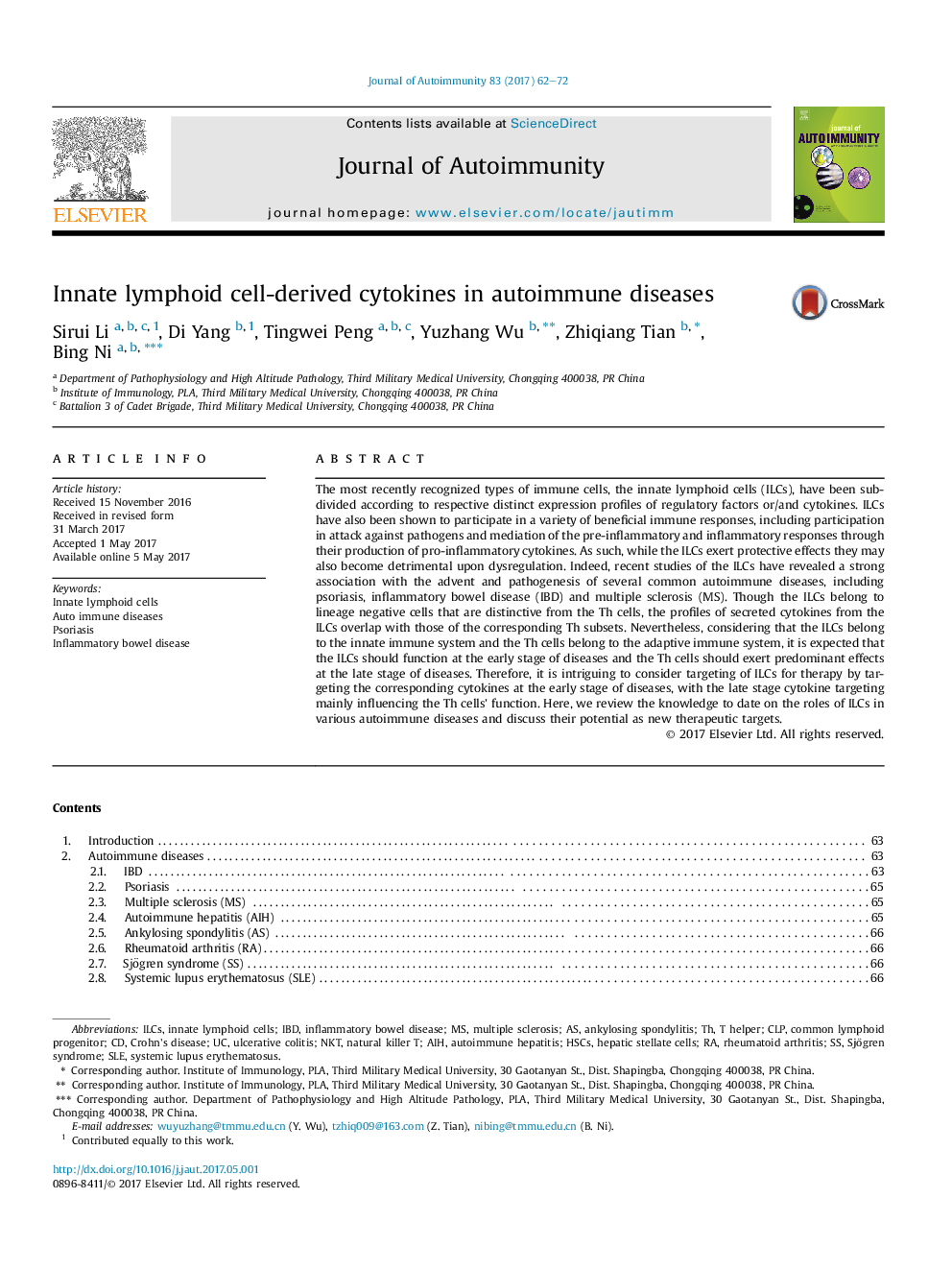| کد مقاله | کد نشریه | سال انتشار | مقاله انگلیسی | نسخه تمام متن |
|---|---|---|---|---|
| 5667844 | 1592266 | 2017 | 11 صفحه PDF | دانلود رایگان |
- ILC subsets display different potential functions in autoimmune pathogenesis.
- ILC1s secrete type I cytokines for promoting inflammation in a variety of autoimmune diseases.
- ILC2s play important roles in fibrosis of different tissues and organs in various autoimmune diseases.
- IL-17 or IL-22 derived from ILC3s promotes/inhibits local inflammation in autoimmune diseases.
- Targeting of ILCs-related cytokines for therapy at the early stage of diseases is a promising strategy.
The most recently recognized types of immune cells, the innate lymphoid cells (ILCs), have been sub-divided according to respective distinct expression profiles of regulatory factors or/and cytokines. ILCs have also been shown to participate in a variety of beneficial immune responses, including participation in attack against pathogens and mediation of the pre-inflammatory and inflammatory responses through their production of pro-inflammatory cytokines. As such, while the ILCs exert protective effects they may also become detrimental upon dysregulation. Indeed, recent studies of the ILCs have revealed a strong association with the advent and pathogenesis of several common autoimmune diseases, including psoriasis, inflammatory bowel disease (IBD) and multiple sclerosis (MS). Though the ILCs belong to lineage negative cells that are distinctive from the Th cells, the profiles of secreted cytokines from the ILCs overlap with those of the corresponding Th subsets. Nevertheless, considering that the ILCs belong to the innate immune system and the Th cells belong to the adaptive immune system, it is expected that the ILCs should function at the early stage of diseases and the Th cells should exert predominant effects at the late stage of diseases. Therefore, it is intriguing to consider targeting of ILCs for therapy by targeting the corresponding cytokines at the early stage of diseases, with the late stage cytokine targeting mainly influencing the Th cells' function. Here, we review the knowledge to date on the roles of ILCs in various autoimmune diseases and discuss their potential as new therapeutic targets.
Journal: Journal of Autoimmunity - Volume 83, September 2017, Pages 62-72
